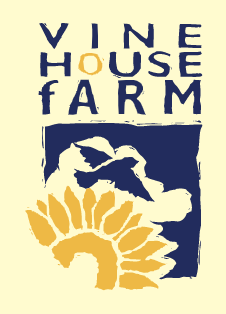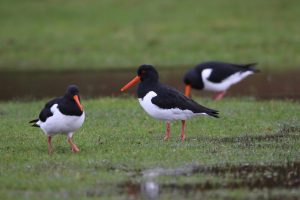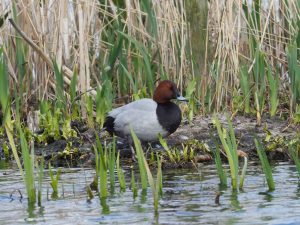
October was certainly an exceptional month here in South Lincolnshire, with so much warm dry weather. Did it break any records? Maybe the surprising answer to that is ‘no’. In 2001 and 2006, we had warmer Octobers, around 13.3°C, compared to last month’s average of 12.75°C, but they were both very wet. Over the past 47 years the average temperature in October has risen by 1.6°C. In 2001, there were four inches of rain during October and that was after three inches in September. I can’t imagine it was very pleasant to be a farmer that month. This October will be the driest in the last 40 years with only 1/3 inch or 8mm of rain falling.

Autumn is our busiest time of the year, every day gets shorter and it may get a bit wetter and when November comes the soil doesn’t dry out much, so it’s a race against time. A month like the autumn we are experiencing here in South Lincolnshire is a real bonus. Granted, it was a bit wet in August and the first half of September, but that made sure that all the Rape seed and Oil Radish crops established well and it was moist enough to lift potatoes and drill wheat.
We sow Oil Radish to condition and capture the nitrogen in the soil. It is a very good rooting plant, as it breaks the soil up so that the next crop can get its roots down and heavy rain can soak in instead of running off the field. A bare or ploughed field left overwinter will lose nitrogen and after a very wet winter our crops need nitrogen in the spring. The Oil Radish captures nitrogen during the autumn and releases it back into the soil as it dies down in the spring. A recent report in our daily paper says that our soils were becoming degraded and in 40 years’ time they would be worn out. By sowing Oil Radish we are trying to rejuvenate them.
Potato harvesting has gone very well, soil conditions have on the whole been good, only the occasional wet day and the picker has only had one major breakdown. Our stores are crammed full, as we have now finished lifting and I expect other farmers stores are also full. It would be far better if they were not full because 5% less potatoes could mean they are worth an extra £100/ton. If prices do not rise, we will lose money on our potato crop this year.
Winter wheat drilling has been taking place; we grow wheat every other year. The average farmer grows three or four different crops but we grow about 10 different crops. These include those grown for bird seed and means that we have a wider rotation than most farmers, which is a good thing.
Our organic fields also have to be seen to, they are actually doing very well and we are turning more fields over to organic farming. We grow crops for seed for other farmers to grow on their land: winter wheat, spring barley, stubble turnips and red clover at the moment. We have to be very careful with the weeds and we regularly walk over the fields pulling docks, wild oats and charlock out as those seeds are very similar to the seeds that we are growing and in some cases we are unable to separate them from the crop after harvesting.


Autumn is a time when our summer visitors have left and our resident birds are very quiet. They moult all their feathers in the autumn and when they’re moulting their wing feathers, they’re not able to fly quite so fast so they keep themselves less visible. Moulting needs to take place when there is a surplus of food, as they have to eat a lot more food to grow a fresh coat.
Sparrowhawks have to be able to fly fast every day to be able to catch their food, so they have a different strategy. They only moult one wing feather at a time on each side, which doesn’t reduce their speed and manoeuvrability. Manoeuvrability is just as important as speed to a Sparrowhawk.
For many bird watchers Autumn is an exciting time of year, as there will be rarities arriving on our coasts. Whilst it is nice to see a rare bird, I get more satisfaction improving the habitat on our farm than getting a glimpse of these rare birds.
This autumn I have been moving around the Tree Sparrow boxes around and sowing extra wild flower seeds in some of our margins. Where I have 20 or 30 nest boxes all in one group, I have been taking some down and making smaller groups, but spreading them over more of the farm. Tree Sparrows tend to nest communally but after a few years move away from a site. I think that could be because they have reduced the insect population in that area. Tree Sparrows can only nest where I erect nest boxes, as we don’t have any trees with holes. I am spreading the boxes around the farms in small groups so that they are less likely to run out of insects.
Four pairs of Barn Owls have decided to have a second brood. The first brood was not very successful, brood sizes averaged one or two and some of them failed altogether because of the wet and windy period from 5th to 12th of June.
During that week Barn Owls were unable to hunt successfully. After 12th June, vole numbers increased due to a combination of not being hunted for a week and less mouths to feed as the owlets had died. This enabled those Barn Owls whose broods had failed to have another attempt to breed four or five chicks. Two of these broods have already fledged, with the other
brood, that I know of, just about to leave the nest.
Although so far this autumn we have been lucky with the mild
temperatures, now is the perfect time to step up feeding garden birds. With a ready supply of a variety of foods, you will be rewarded with a flush of garden visitors when the temperature drops. If you haven’t already started feeding any suet products so far this year, now is a perfect time to start. Our Super Suet Fat Balls are as popular as ever. If you like the idea of trying something new we now stock Birdy Butter, a soft, rich blend of suet and peanuts offering a high energy protein boost.
I saw our first Fieldfare arrive on the farm from Scandinavia, to get away from the snow and frost. Its arrival will have been delayed due to too many South & South West winds.
EVENTS
Sat 18th November:
Lincolnshire Wildlife Trust Coffee Morning
Pinchbeck Village Hall 10am – 12pm
All welcome, coffee and cake available, along with local produce for sale. All proceeds to Lincs Wildlife Trust.



